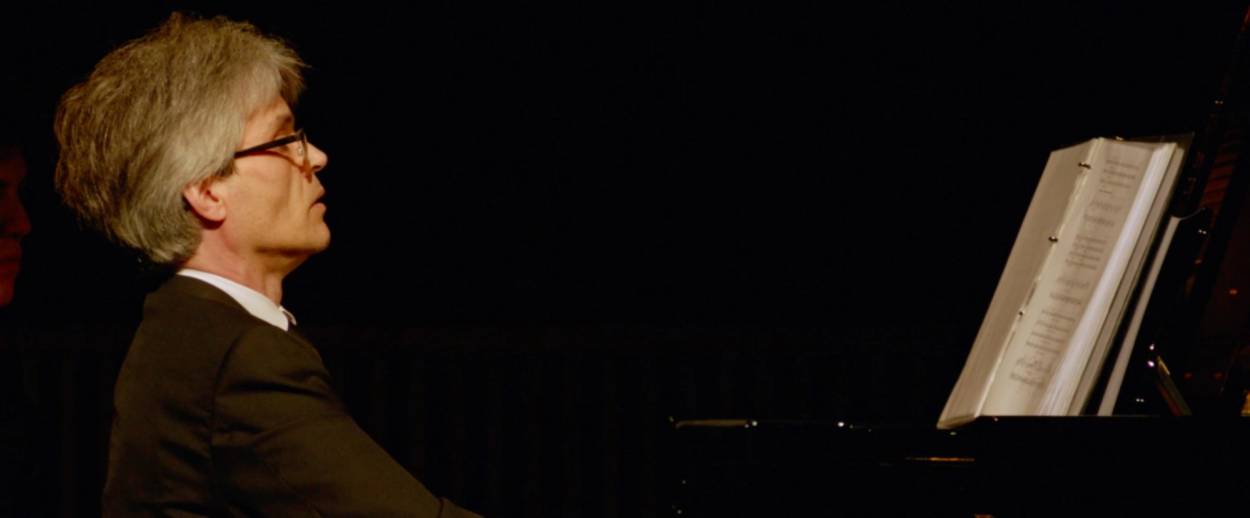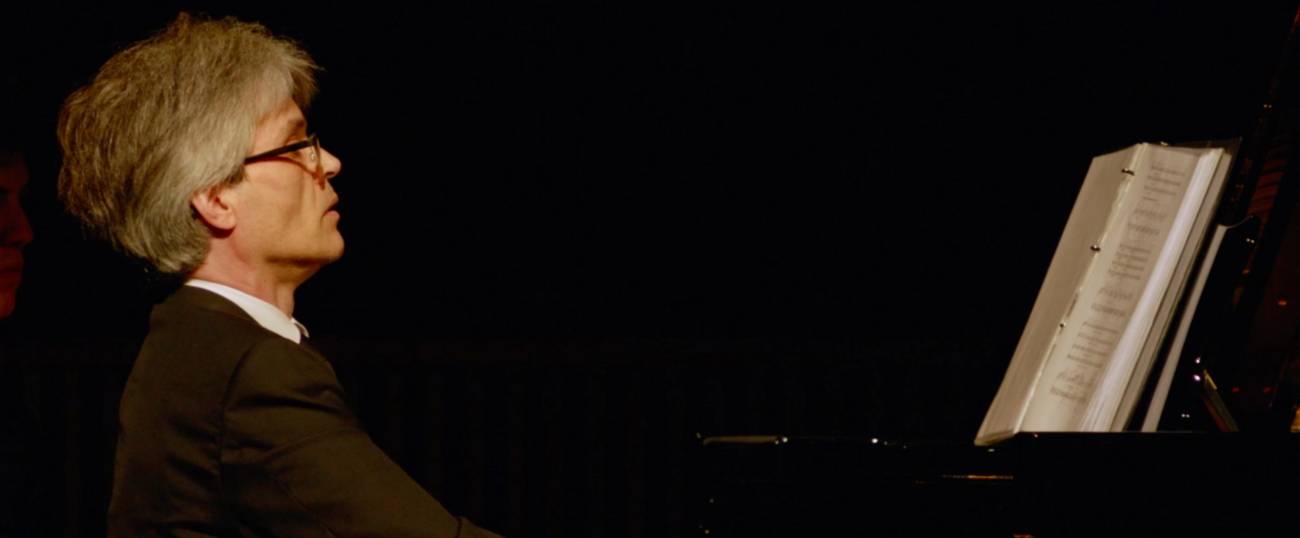Tribute to an Exile
A new documentary on the life and work of composer Artur Schnabel who tried to escape his Jewishness before fleeing Germany ahead of Hitler




Could the perfect soundtrack to the events of the first half of the twentieth century have gone all but unheard until this very day? A new documentary film, Artur Schnabel: No Place of Exile, compellingly makes that case for its eponymous hero.
The film is directed by Matthew Mishory, a filmmaker from a family of musicians, who knew Schnabel only for his definitive, expressive interpretations of Beethoven’s works for the piano. That changed when Mishory got hooked on Schnabel’s little-known avant-garde compositions by Markus Pawlik, the acclaimed German concert pianist. Through Pawlik, he also learned more of Schnabel’s intriguing biography. “It was clear that this was a major twentieth-century life, musically and otherwise, and that it hadn’t really been explored fully,” Mishory told me. The two men began working on a tribute to Schnabel’s life and music: a concert helmed by Pawlik (with video projections by Mishory) that would, in turn, become part of a film by Mishory. The concert was held at the 2016 Musikfest Berlin. The resulting film premiered earlier this year on Arte and recently began streaming on Amazon. It will also be screened at the Library of Congress in late November, with a concert featuring Schnabel’s works on the following evening (both events are free).
Schnabel, born in a shtetl in Austrian Silesia in 1882, received his musical education in Vienna. At the turn of the century, he moved to Berlin, where he remained until Hitler’s ascent in 1933. “His was the quintessential 20th century assimilated Austro-German-Jewish life,” Mishory said. “He wasn’t religious. He wanted desperately to be recognized as a German, and indeed he occupied as high a place in the musical and cultural life of Berlin as one could. He was a preeminent interpreter of German music of his time, and yet when it came down to it, he was deemed not a German after all.” In 1912, Schnabel had taken the extraordinary step of renouncing his Judaism at the public registrar’s office, but that was not good enough for the Nazi regime. He soon fled with his family to Italy, and from there to the United States. He died in Switzerland in 1951.
The film serves as a primer to Schnabel’s life and work, but it is hardly a run-of-the-mill talking heads hagiography. Rather, it traces Schnabel’s path across countries and continents, with haunting imagery serving as a visual score to Schnabel’s music, which is dissonant and atonal, but richly evocative and beautiful at the same time. Mishory, who also directed the grim documentary Absent, set in the Moldovan hinterlands, revels in the Alpine landscapes of Western Europe, and in the magnificent interiors of the Hotel Waldhaus Sils in the Swiss Engadin, where Schnabel composed his own personal Deutsches Requiem. “The Engadin is where Schnabel returned again and again, even after the war,” Mishory told me. “The clouds and the mountains and the colors of the lakes are imprinted in his work, as they are in the film. Filming there was a magical experience, connecting to this transcendental and mystical side of Schnabel.”
The 2016 Berlin concert which features prominently in the film, included a selection of Schnabel’s pieces performed by Markus Pawlik together with the German baritone Dietrich Henschel and the Szymanowski Quartet, the wonderful Polish string quartet (an encore performance was featured at the inaugural edition of the Megève festival this past summer). Pawlik’s emotional bond with the music is deeply moving. “Markus’s personal connection to Schnabel’s life and music has been very central to this project,” Mishory said. “Schnabel was an assimilated Austro-German Jew who was ultimately chased from Europe by the Nazis. Markus is a German convert to Judaism married to the daughter of a Survivor. And he’s given Schnabel’s compositions a new life.”
Why, then, have Schnabel’s compositions fallen by the wayside? I asked Norman Lebrecht, the prolific classical music writer, who recently attended the film and concert in Megève, for his take on the man and his work. “I’m in two minds about Schnabel the composer. He clearly set out to write in a modern, atonal idiom, perhaps trying to place himself as far as possible from the music he played,” Lebrecht wrote in an email. “The pieces from before World War One are quite challenging, though by no means as aggressive as Schoenberg. In 1920 he took a three-year break in order to apply himself to composing, but no single work emerged to capture the imagination – except, maybe, the 50-minute solo violin sonata. So I can’t be sure where Schnabel is going. If he really believed in the music, surely he would have paid for performances. Can we believe in it? Not yet.”
In the film’s closing moments, the conductor Kent Nagano offers his own thoughts on our collective musical memory. “No one is the absolute authority”, says Nagano. “No one can really say with absolute certainty what will live on into the twenty-first century, into the twenty-third century. Through performing a work and interpreting it very, very strongly… in the end, all works deserve to have the very strongest argument possible.” If nothing else, Artur Schnabel: No Place of Exile, is the strongest argument one could make for its protagonist’s place in the Modernist pantheon.
Tal Kra-Oz is a writer based in Tel Aviv.